Why New Jersey is a hub for biotech manufacturing.
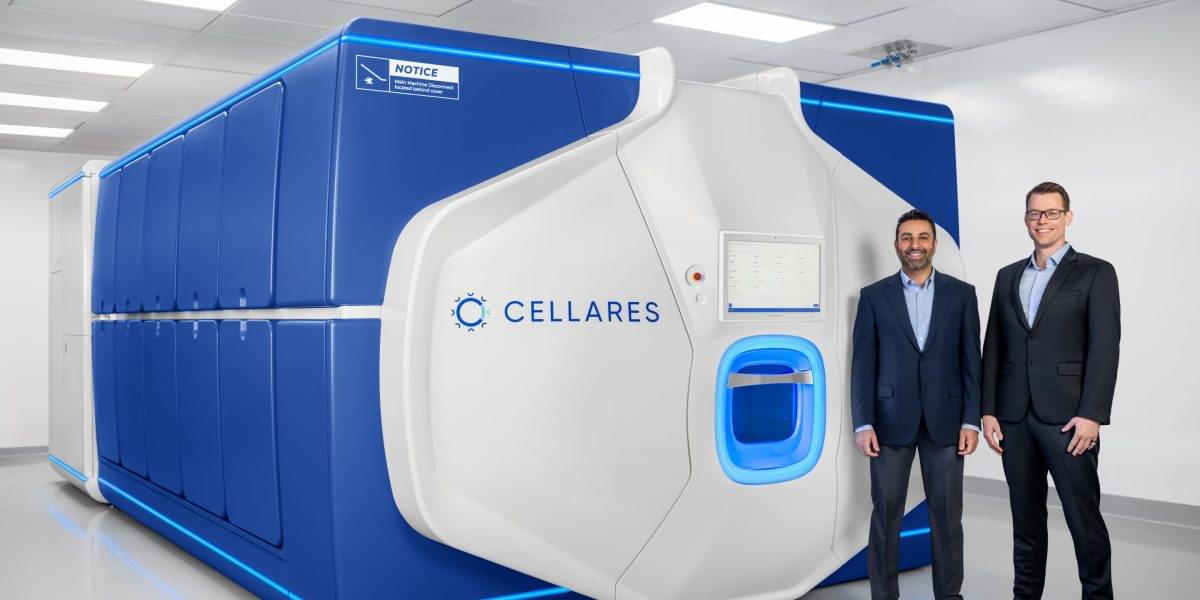

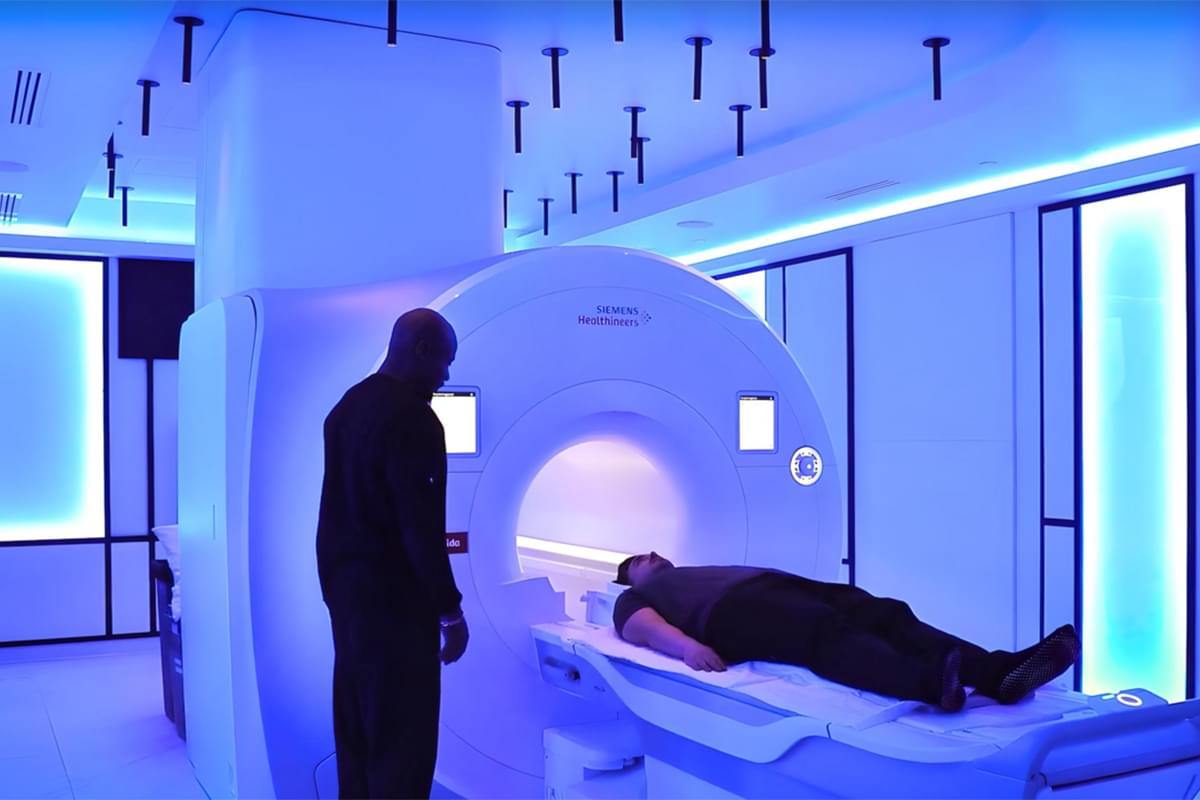
In an unprecedented move, precision medicine provider Human Longevity, Inc. (HLI) has effectively guaranteed its Executive Health Program members that it will prevent them from developing late stage prostate cancer. Such is the company’s belief in its preventive approach, it has announced it is committing $1 million for advanced treatment of any member diagnosed with stage four of the disease or higher while under its care.
Founded in 2013 by genomics pioneer Dr J Craig Venter, San Francisco-based Human Longevity Inc. (HLI) aims to extend human health and performance beyond the traditional focus on treating illness. By continuously analyzing health data from its clients, HLI seeks to identify potential health risks – such as prostate cancer – early, enabling targeted interventions to extend both healthspan and lifespan.
Leveraging data collected from more than 5,000 men over the past decade, HLI claims it has developed what it believes to be the most advanced algorithm for early prostate cancer detection. As preventive medicine continues to demonstrate its capacity to mitigate previously life-threatening conditions, will we see commitments of this nature emerging for more diseases?
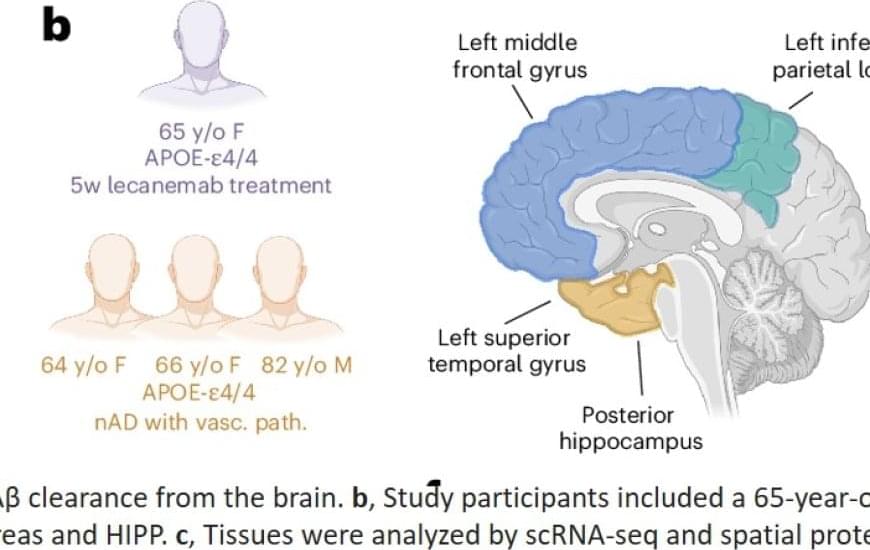
The study is the first to use a cutting-edge technique called spatial transcriptomics on human clinical-trial brains with Alzheimer’s disease. The technique allows scientists to pinpoint the specific spatial location of gene activity inside a tissue sample.
By analyzing donated brain tissue from deceased people with Alzheimer’s disease who received amyloid-beta immunization and comparing it to those who did not, the scientists found that when these treatments work, the brain’s immune cells (called microglia) don’t just clear plaques — they also help restore a healthier brain environment.
But not all microglia are created equal. Some are quite effective at removing plaques, while others struggle, the study found. Also, microglia in treated brains adopt distinct states depending on the brain region and type of immunization. Lastly, certain genes, like TREM2 and APOE, are more active in microglia in response to treatment, helping these cells remove amyloid beta plaques, according to the findings.
“The idea is that in people who already have Alzheimer’s disease, yes, you can maybe remove amyloid, but if the tau spread has been set in motion, you are fighting an uphill battle,” the author said. “But maybe, if you treat people so early that they don’t yet have tau pathology, you can stop the domino effect from happening. Our study is the first to identify the mechanisms in microglia, the brain’s immune cells, that help limit the spread of amyloid in certain brain regions following treatment with amyloid-targeting drugs.
For more than three decades, scientists have been racing to stop Alzheimer’s disease by removing amyloid beta plaques — sticky clumps of toxic protein that accumulate in the brain. Now, a new study suggests a promising alternative: enhancing the brain’s own immune cells to clear these plaques more effectively.
The findings could reshape the future of Alzheimer’s treatments, shifting the focus from simply removing plaques to harnessing the brain’s natural defenses.
Earlier attempts at an Alzheimer’s vaccine failed when the immune system’s response caused dangerous brain swelling. Even today’s FDA-approved antibody treatments remain controversial, offering only modest benefits with potential side effects and high-price points.
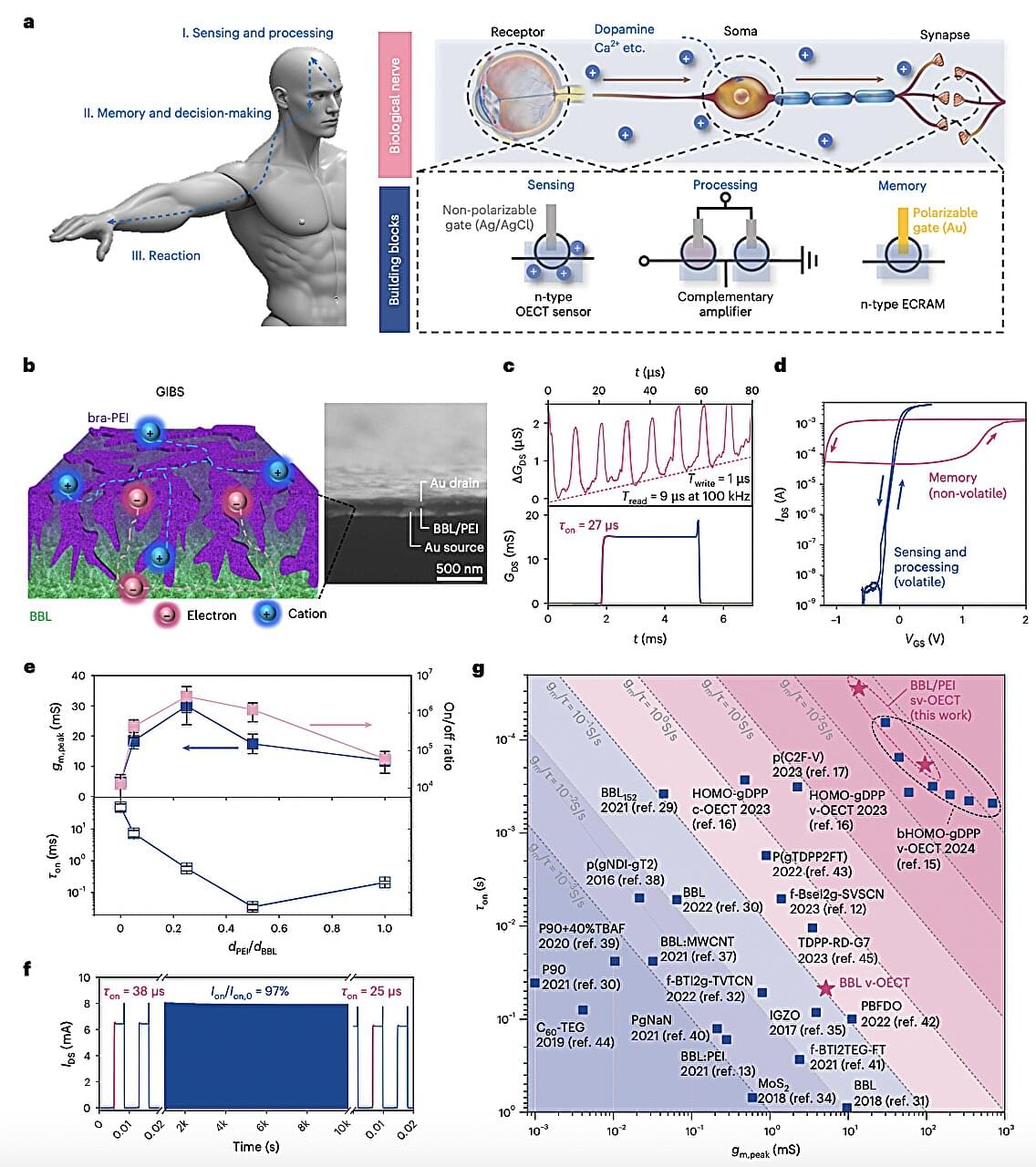
In recent years, many engineers have been trying to develop hardware components that could emulate the functions of various biological systems, including synapses, the human skin and nerves. These bio-inspired systems include what are referred to as artificial nerves, systems designed to emulate the role of nerves in the body of humans and other animals.
Artificial nerves could be useful for a wide range of applications, ranging from systems for repairing damaged nerves to brain-computer interfaces, highly precise sensors and other advanced electronics. So far, however, the engineering of nerve-inspired systems that operate at biologically compatible frequencies and realistically replicate the function of nerves has proved challenging.
Researchers at Xi’an Jiaotong University in China and Technical University of Munich recently developed a new high-frequency artificial nerve with a unique design that optimizes the transport of ions and electrons, while also rapidly responding to signals and retaining charge-related information. This nerve-inspired system, introduced in a paper published in Nature Electronics, is based on homogenously integrated organic electrochemical transistors.

Scientists have uncovered the mechanism behind how aspirin could reduce the metastasis of some cancers by stimulating the immune system, in a new study primarily funded by the Medical Research Council.
In the study, published in Nature, the scientists say that discovering the mechanism will support ongoing clinical trials, and could lead to the targeted use of aspirin to prevent the spread of susceptible types of cancer, and to the development of more effective drugs to prevent cancer metastasis.
The scientists caution that, in some people, aspirin can have serious side-effects and clinical trials are underway to determine how to use it safely and effectively to prevent cancer spread, so people should consult their doctor before starting to take it.
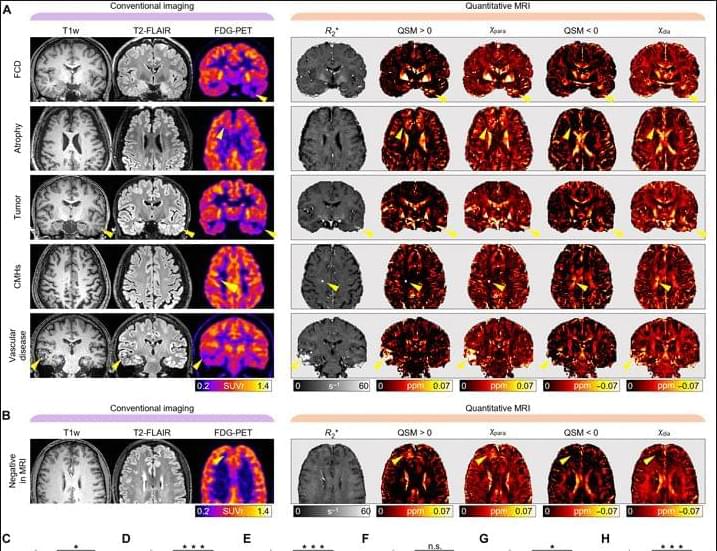
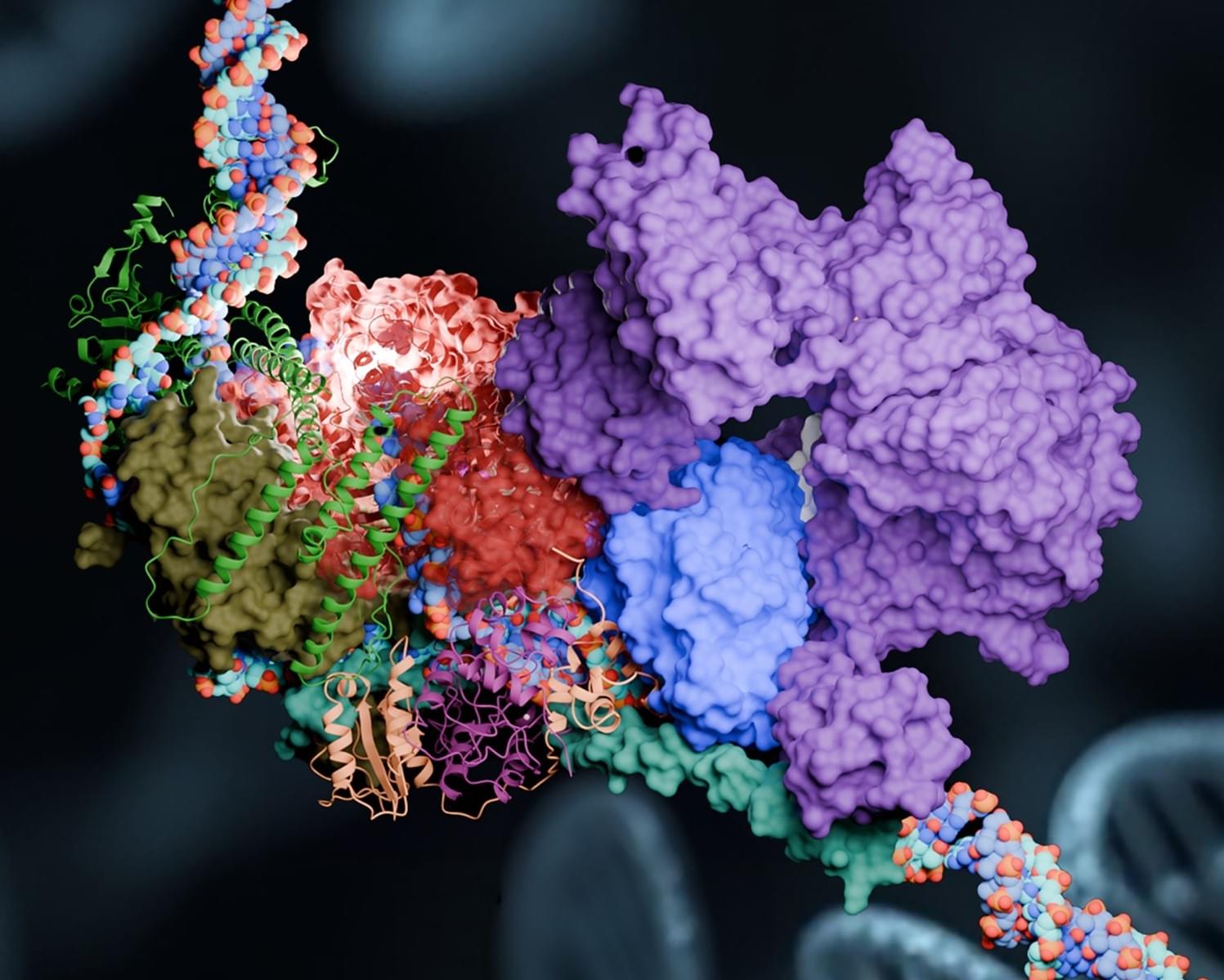
Sunburns and aging skin are obvious effects of exposure to harmful UV rays, tobacco smoke and other carcinogens. But the effects aren’t just skin deep. Inside the body, DNA is literally being torn apart.
Understanding how the body heals and protects itself from DNA damage is vital for treating genetic disorders and life-threatening diseases such as cancer. But despite numerous studies and medical advances, much about the molecular mechanisms of DNA repair remains a mystery.
For the past several years, researchers at Georgia State University tapped into the Summit supercomputer at the Department of Energy’s Oak Ridge National Laboratory to study an elaborate molecular pathway called nucleotide excision repair, or NER relies on an array of highly dynamic protein complexes to cut out, or excise, damaged DNA with surgical precision.
February’s Longevity Review is now available, with a look at how the combination of Omega 3, Vit D & exercise can slow aging; a human trial of young blood plasma; Klotho gene therapy to increase lifespan; and, in the Canadian content study, how cellular reprogramming protects retinal neurons in multiple sclerosis.
A review of the most interesting and impactful longevity related studies from Febuary, with a look at how the combination of Omega 3, Vit D & exercise can slow aging; a human trial of young blood plasma; Klotho gene therapy to increase lifespan; and, in the Canadian content study, how cellular reprogramming protects retinal neurons in multiple sclerosis.
Contents:
1. Intro 0:00
2. Omega 3, Vitamin D & Exercise Slow Aging 0:55
3. Young Blood Plasma Human Trial 9:46
4. Klotho Gene Therapy Increases Lifespan 18:45.
Canadian Content Study.

What is intelligence? We can all agree that humans are intelligent and many of us would likely extend that definition to the most mentally adept creatures of the animal kingdom—from dolphins to corvids. Scientists may extend that definition to all living animals, and some might even include plants. But for Michael Levin, Ph.D., all of those definitions woefully undercount the intelligences, or as he phrases them, “alien minds,” that surround us.
As a synthetic and developmental biologist at Tufts University in Massachusetts, Levin has explored the cognitive glue of bioelectricity, created biobots from animal and human cells, searched for empirical evidence defining the scope of cognition, and challenged many of the long-held tenets of molecular biology. Fascinated by electrical engineering and biology since he was seven years old, Levin says all of these efforts are in service of developing a mature field of diverse intelligence—one that can recognize that cognition lies on a spectrum, and that what humans perceive as consciousness could look radically different when compared to a cell or emerging artificial intelligence.
We spoke with Levin about how he developed these remarkable ideas, why he believes many alien minds live among us, and what he hopes for humanity’s future.
This compares some of the ringworlds, centrifuges, space stations, and ships that use spin to make gravity. It also try’s to show how the variables of artificial gravity are used to make centripetal acceleration into spin gravity.
Calculator used: https://www.artificial-gravity.com/sw/SpinCalc/
▀▀▀▀▀▀▀▀▀▀▀▀▀▀▀▀▀▀▀▀▀▀▀▀▀▀
REFERENCES
1. Hill, Paul R.; Schnitzer, Emanuel (1962 September). “Rotating Manned Space Stations.” In, Astronautics (vol. 7, no. 9, p. 14
18). Reston, Virginia, USA: American Rocket Society / American Institute of Aeronautics and Astronautics.
2. Gilruth, Robert R. (1969). “Manned Space Stations – Gateway to our Future in Space.” In S. F. Singer (Ed.), Manned.
Laboratories in Space (p. 1–10). Berlin, Germany: Springer-Verlag.
3. Gordon, Theodore J.; Gervais, Robert L. (1969). “Critical Engineering Problems of Space Stations.” In S. F. Singer (Ed.).
Manned Laboratories in Space (p. 11–32). Berlin, Germany: Springer-Verlag.
4. Stone, Ralph W. (1973). “An Overview of Artificial Gravity.” In A. Graybiel (Ed.), Fifth Symposium on the Role of the.
Vestibular Organs in Space Exploration (NASA SP-314, p. 23–33). Pensacola, Florida, USA, 19–21 August 1970.
Washington, DC, USA: NASA
5. Cramer, D. Bryant (1985). “Physiological Considerations of Artificial Gravity.” In A. C. Cron (Ed.), Applications of Tethers in.
Space (NASA CP-2364, vol. 1, p. 3·95–3·107). Williamsburg, Virginia, USA, 15–17 June 1983. Washington, DC, USA:
NASA.
6. Graybiel, Ashton (1977). “Some Physiological Effects of Alternation Between Zero Gravity and One Gravity.” In J. Grey (Ed.).
Space Manufacturing Facilities (Space Colonies): Proceedings of the Princeton / AIAA / NASA Conference, May 7–9, 1975
7. Hall, Theodore W. “Artificial Gravity in Theory and Practice.” International Conference on Environmental Systems, 2016, www.artificial-gravity.com/ICES-2016–194.pdf.
▀▀▀▀▀▀▀▀▀▀▀▀▀▀▀▀▀▀▀▀▀▀▀▀▀▀
SOCIAL
Twitter: https://twitter.com/OverviewEfect.
Instagram: https://www.instagram.com/overviewefects/
Facebook: https://www.facebook.com/profile.php?id=61552024642764
▀▀▀▀▀▀▀▀▀▀▀▀▀▀▀▀▀▀▀▀▀▀▀▀▀▀
ATTRIBUTION
Mass Effect music from @MrHulthen Check it out and his channel here: https://www.youtube.com/watch?v=57-xIuu4Vv.
“Citadel (Mass Effect)” (https://skfb.ly/6CLEX) by Yanez Designs is licensed under Creative Commons Attribution.
“Babylon 5 Station (Babylon 5)” (https://skfb.ly/6pFJp) by uperesito is licensed under Creative Commons Attribution.
“Halo Ring” (https://skfb.ly/orU8C) by Inditrion Dradnon is licensed under Creative Commons Attribution.
“Empire State Building” (https://skfb.ly/BGwU) by Microsoft is licensed under Creative Commons Attribution (http://creativecommons.org/licenses/by/4.0/).
“MCRN Tachi [Expanse TV Show]” (https://skfb.ly/o6JGy) by Jakub. Vildomec is licensed under Creative Commons Attribution.
“endurance spaceship” (https://skfb.ly/6TnFK) by devanshujha is licensed under Creative Commons Attribution.
“Discovery 1″ (https://skfb.ly/6oRCD) by uperesito is licensed under Creative Commons Attribution.
“Soviet Nuclear Computer Terminal” (https://skfb.ly/prtFw) by PIPO is licensed under Creative Commons Attribution.
“Hail Mary Ship” by MallocArray https://www.printables.com/model/232479-hail-mary-ship/files.
“Death Star — Star Wars” (https://skfb.ly/oqGZX) by Quiznos323.
▀▀▀▀▀▀▀▀▀▀▀▀▀▀▀▀▀▀▀▀▀▀▀▀▀▀